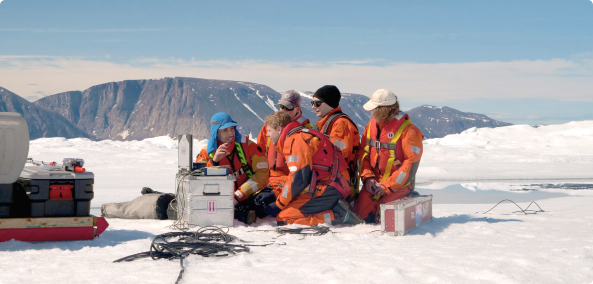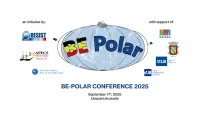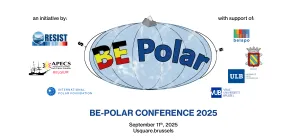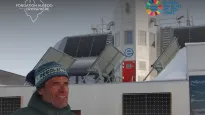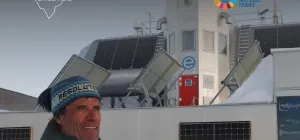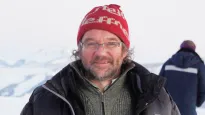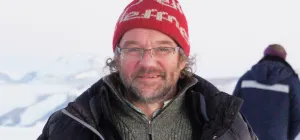The scientists are coming!
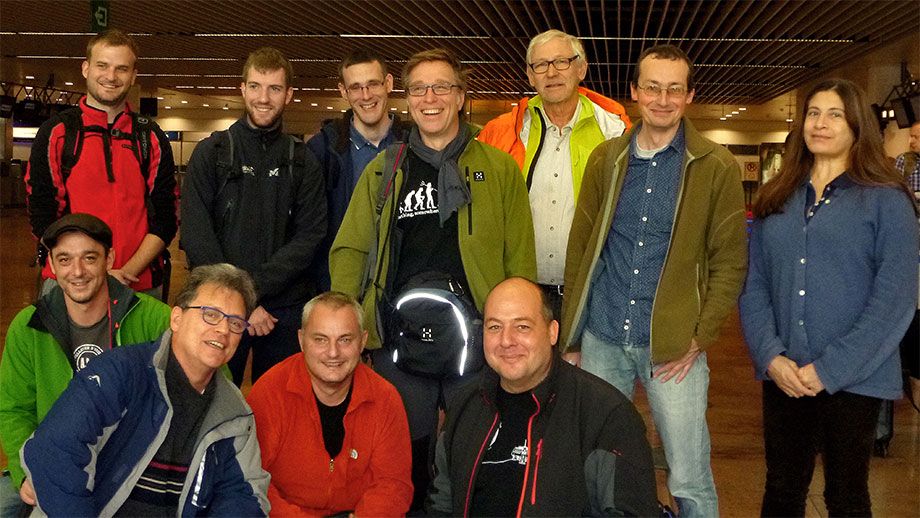
Several scientists, a teacher, a veteran Belgian journalist, a field guide, and the team’s doctor will arrive in Antarctica in a few days, more than doubling the number of people at the station.
The first scientists who will be working on research projects during the 2014-15 season have finally started their journey to Antarctica! Between now and the end of December, nine scientists working on four different research projects will spend several weeks in November and December in the Queen Maud Land in East Antarctica working on their research projects, which focus on ice, earth and the atmosphere.
Ice, ice, baby!
Two scientific projects will be looking at ice during the first half of the current research season.
Back in September, Jan Lenearts from the University of Utrecht became the fourth laureate of the InBev-Baillet Latour Antarctica Fellowship, the largest research grant in the world awarded to young polar scientists. Over the next two seasons in Antarctica, Jan will use the grant money he received to conduct field research for the BENEMELT project, which brings researchers from Belgian (KU Leuven, Université Libre de Bruxelles) and Dutch (Utrecht University) universities together to study snow melt on ice shelves. BENEMELT scientists will combine Jan’s measurements with satellite data in order to better understand how snow characteristics on ice shelves change as the snow melts, and how snow melt impacts ice shelf stability. Their findings will be used to improve models of mass balance of the East Antarctic Ice Sheet, which will in turn provide a better understanding of how much ice is melting from the Antarctica Ice Sheet and ultimately contributing to sea level rise.
As ice shelves are found at the coast of Antarctica, Jan will travel out to the coast with Alain and several other scientists working on another reach project collecting data on the movement of ice at the coast. Jean-Louis Tison, Frank Pattyn, Morgane Philippe, and Brice Van Lefferinge from the Université Libre de Bruxelles, along with Nicholas Bergeot from the Royal Observatory of Belgium, will be continuing work on the ICECON project. ICECON scientists want to get more accurate data on ice sheet movements in Antarctica in order to improve models that describe and predict the ice sheet’s behaviour. Over the past few seasons, they've been setting up GPS stations on the ice to track ice movements.
Earth, wind and instruments
Denis Lombardi from the University of Luxembourg will be returning to Antarctic for yet another season for the GIANT-LISSA project. This season he will continue to add seismometers to the growing the network that monitors seismic activity throughout the Queen Maud Land region of East Antarctica.
Meanwhile, Quentin Laffineur and Alexander Mangold form the Royal Meteorological Institute of Belgium will spend their weeks in Antarctica setting up a new atmospheric science facility, launch balloons that will take measurements of moisture in the atmosphere, and service the automatic weather station at Utsteinen.
Support for the scientists
There to help the scientists will be Raphael Richard, an experienced field guide who will accompany many of the scientists on thier field missions. And Swiss doctor Jacques Richon, who has already spent a number of seasons at the Princes Elisabeth over the years, will help make sure everyone stays healthy!
Rounding out the new arrivals is Belgian journalist Jos van Hemelrijck, who spent several years working at the Flemish television station VRT and covered the construction of the Princess Elisabeth station during the 2007-08 season, will return to Antarctica this year to cover the different scientific research projects. We expect to have lots of high-quality reporting from such an experienced and well-respected journalist. No pressure, Jos!
And as mentioned in our last news, Roger Radoux, a Belgian teacher heading to Antarctica for the first time under the Polar Quest contest, will inspire the next generation of polar scientists as he gives lessons to his high school students back home in Belgium while he's at the station.
Weather permitting, they should all arrive at the station in a few days. Fingers crossed!
Download